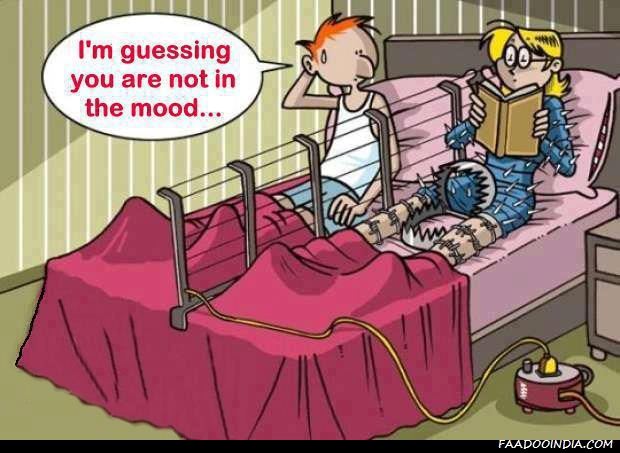How Strong is Your Marriage? A Checklist
/His wife shakes her head back and forth with disbelief. “I’ve been telling you for five years that I’m not happy.”
“I didn’t know it was that serious,” he sighs.
Unfortunately, this exchange is not that unusual. I’ve seen it in my office more than once, and divorce statistics show that women are much more likely to initiate a divorce than men. When I’m counseling a couple with a deeply unhappy wife and a husband downplaying the seriousness of her concerns, I encourage the husband just to be empathetic. It can take a while for him to realize that her (or his) unhappiness is enough to bring down their marriage.
If you want to avoid a shock like this in your marriage, I suggest daily and weekly check-ins with your partner. While this structured approach to communication and connection might feel contrived at first, the initial awkwardness will pass. Over time, checking in can become a natural way of evaluating the health of your relationship.
DAILY CHECK-IN’S:
The intent of the daily check-in is to give each partner space to be heard and feel important about their day. Spend about five minutes each sharing any highs, lows, challenges, and successes from your day. After each person has shared, end the conversation by exchanging some words of appreciation about and for each other.
Talking about your day facilitates support by ensuring you’re aware of your partner’s struggles and celebrating their successes. The moments of gratitude help retrain your mind to look for the positive aspects of your relationship. Vary the kinds of things you appreciate from day to day: these can be observations about physical appearance, qualities, joyful moments, strengths, kind gestures, and feelings of love. Even if one of you is traveling, you can still maintain a routine of checking-in and sharing moments of gratitude together.
Now, if you’re thinking you don’t have time for this on a daily basis, stop and consider that. Are all of the other responsibilities, tasks, and activities you do throughout the day really more important than your marriage? Is your strong, healthy marriage critical to your happiness in life? Keep this big picture in mind as you read about weekly check-ins.
WEEKLY CHECK-IN’S:
Weekly check-ins are more in depth, and can focus specifically on whatever is important to your relationship. What are you struggling with or concerned about: communication, intimacy, happiness? If you find it difficult to measure concepts like happiness or to quantify how intimate you feel, use a ranking system from 1-10. For example, if clear communication has been a concern, keep a weekly log of how you each rank your communication for the preceding week, 1 meaning terrible and 10 meaning fabulous. Create a checklist of all relevant concepts and factors, and maintain an ongoing record of relationship statistics. This way, you can measure positive change and monitor for danger. This may sound like overkill or just plain nerdy, but I know some couples who thrive with this type of awareness.
Below I propose nine factors to consider in creating your weekly checklist. Some of these factors overlap, but each speaks to a different area for potential relationship problems. Weighing several factors at once can help you take an accurate pulse of your marriage.
1. Love (How loved did you feel?)
2. Intimacy (How strong was your emotional intimacy?)
3. Sexual Interaction (Did you experience enough sexual intimacy?)
4. Connection (Did you have an overall feeling of being on the same page with your partner?)
5. Communication (Did you communicate clearly as a couple?)
6. Respect (Did you feel respected in interactions with your partner?)
7. Teamwork (Did you feel like a team when planning and doing tasks?)
8. Nurturing (Did you feel cared for?)
9. Happiness (How much joy and happiness did you experience?)
The ground rules of the weekly check-in are to be open-minded, compassionate, and mindful. Also, agree ahead of time about the meaning of your scores. For example, a 5 isn’t comparable to a 50% grade on a test, indicating failure. It means that you felt average in that area—not great, but not bad either. Record your scores separately and then share them, one by one. Speak to what a 6 in intimacy means to you in the context of your week. Why wasn’t it a 3, and could it have been an 8? Be truthful yet kind, and take ownership that this is how YOU perceive your relationship. Recognize that your partner may perceive it in a different way. Indeed that’s the whole point—to voice these differences before they start breaking you apart.
It might seem surprising that a married couple living under the same roof could be so out of touch with each other’s happiness, but this happens more frequently than you’d expect. Daily and weekly check-ins have the potential to provide insights into your own motivations, learn what matters to your partner, and voice concerns in a timely manner. This is taking responsibility for the strength of your marriage.
(This was originally posted on The Good Men Project website, which you can view HERE.)
~Dr. Jenn Gunsaullus, San Diego, CA -- Sexologist, Sociologist, Sexuality Speaker









































